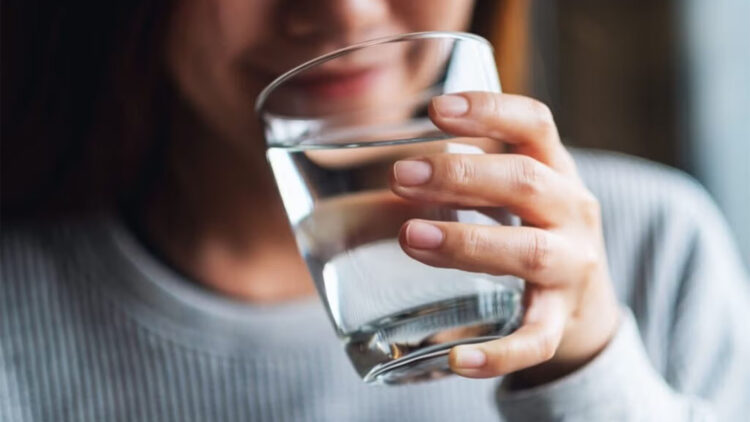Drinking enough water can affect how your body responds to stress. And according to a recent study from Liverpool John Moores University, drinking less than 1.5 liters of water per day is directly associated with higher levels of cortisol, which is the biggest stress hormone. But why is that important? Because depression, diabetes, and cardiovascular disease have all been linked to high cortisol levels.
The researchers used the Trier Social Stress Test, which is a laboratory exercise that consistently increases stress so they can compare with those who drank enough water and with those who didn’t.
For the group that didn’t drink much water, the cortisol spike was significantly higher, indicating that dehydration causes your body to overreact to stress. And how is this possible? the cause is probably Vasopressin, which is a hormone that helps with water conservation in the kidneys and stimulates the stress system in the brain.
What the researchers discovered
The researchers observed two groups of young adults in good health for a week. One group had to consume less than 1.5 liters of fluids each day. The other followed the standard guidelines, which are 2.5 liters for men and roughly 2 liters for women. The groups were balanced with personality traits and sleep patterns, things that also impact stress in order to maintain fairness. They used blood and urine tests to measure hydration levels rather than relying solely on conjecture.
Following the week, both groups finished the Trier Social Stress Test, which included a timed mental math exercise and basically a simulated interview, a stressful but safe scenario that always increases anxiety and heart rate. The result was that while both groups experienced similar levels of stress and heart-rate increases, their hormone reactions where very much different.
Compared to the well-hydrated group, the ones who drank less had a cortisol spike more than 50% higher. Since excessive cortisol reactivity has been linked to health risks in the long term, that “overshoot” is very significant.
What changes with hydration
Vasopressin rises to help your body retain water when you don’t drink enough. It helps maintain fluid balance, but, on the other hand, it also affects the parts of the brain that regulate the stress response, which can raise cortisol levels during harder times.
When this happens repeatedly it can eventually increase the risk of depression, diabetes, and cardiovascular disease. But the lesson here is prevention, not panic. There’s always small daily actions that can help with the balance of it all:
- Keep the water in sight. Leave a bottle by your bed, in your bag, or on your desk. It will be difficult not to notice it.
- Send out gentle reminders. Assign sips to your existing routines, like before class, after brushing your teeth, or during study breaks.
- Add a hint of flavor. Water without a bit more taste can be more tempting. Try adding lemon, cucumber, or herbs.
- Eat foods high in water. Watermelon, cucumbers, oranges…
- Change wisely. Go smooth, substitute one of your regular soda glass, energy drink, or additional coffee for a glass of water.
- Check your colors. Darker urine indicates that you probably need more fluids; pale yellow urine typically indicates good hydration.
Small sips, real impact
According to this Liverpool John Moores University study, even a little dehydration can increase your stress response and raise your cortisol levels during stressful situations like tests, tryouts, or interviews.
Choose foods that promote hydration, keep water close to your hands. Life is already stressful as it is, but you can keep your body and mind calm just by adding a few more sips now to your regular drinking water habits.

